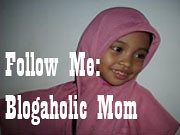 |
| Brisbane university student Yassmin Abdel-Magied, 19, has a passion for fast cars, especially Ferraris: “I just became enamoured with these beautiful machines.’’ Photo: Paul Harris |
AS DREAMS go, Yassmin Abdel-Magied has one that is peculiar and very particular - to be the first female, Muslim, formula one racing driver.
"Everyone thought it was a phase," she says with a laugh. It wasn't. She got the bug for fast cars while watching a movie about six years ago and hasn't stopped dreaming about them since.
Ferraris are her favourite but any muscle cars will do. The 1960s Corvette Sting Ray, for instance. Anything fast, really.
Advertisement: Story continues below
"I just became enamoured with these beautiful machines, the capacity they have. It's just fantastic," Ms Abdel-Magied says.
She admits people are sometimes surprised to hear this kind of blokey passion from a conservatively-dressed Muslim woman who arrived from Sudan with her parents as a toddler and spent her early years at a Brisbane Islamic school.
But Ms Abdel-Magied seems to revel in breaking stereotypes.
"I'll pop up some random quote about cars, and people are like, 'Hang on, she knows what she's talking about'."
Now 19, and about to enter the final year of a mechanical engineering degree at the University of Queensland, she projects all the infectious - and at times daunting - enthusiasm of her generation.
The Young Queenslander of the Year in 2010, she coaches a soccer team for Muslim girls called "Shinpads and Hijabs".
She is a member of the Queensland Design Council and at 16 set up a network for community-minded teens, Youth Without Borders.
"I never get eight hours of sleep at night," she says. "But I'm all right with it, I enjoy being busy, I enjoy helping people … when you want to do things, you find time for it."
Ms Abdel-Magied was born in the Sudanese capital of Khartoum to parents who put a great store in education. Her father was an electrical engineer and her mother an architect.
But in Australia her parents' professional qualifications were mostly not recognised, so it meant they had to start over. It's an issue many new migrants must confront, Ms Abdel-Magied says.
"You see a lot of people coming from various countries with amazing qualifications, but they have to start again. There is a lot of wasted potential,'' she says.
"There is one guy who was essentially the Kerry O'Brien of Sudan - I mean he'd written books, he was a journalist - but he had to start anew. He was driving taxis for five years.''
But Ms Abdel-Magied has clearly thrived and learnt to traverse cultural boundaries. During high school, she switched from the Islamic school to a Christian college, becoming the first girl at the school to wear a headscarf.
This made her something of a de facto ambassador of her faith not long after the September 11, 2001, attacks, meaning lots of questions from fellow students.
But the experience also broadened her view of Australia.
"I'd gone to Islamic school for so long, it was a conscious decision for my parents - those sort of values were inbuilt in me, and in terms of my beliefs being shaken, that didn't really happen,'' she says.
''I knew who I was and I knew what I stood for."
Life now stretches out before her, with a year of university to go - and the prospect of an internship with a car company in Britain next month.
After that, she says, who knows.
"I'm planning to buy a whole bunch of tools and work on my own vehicle."














0 komentar:
Posting Komentar